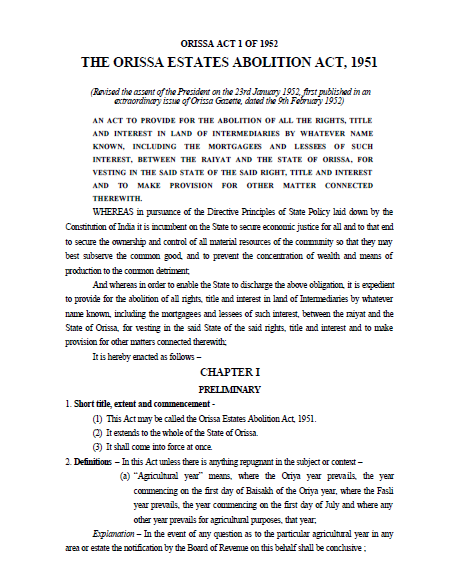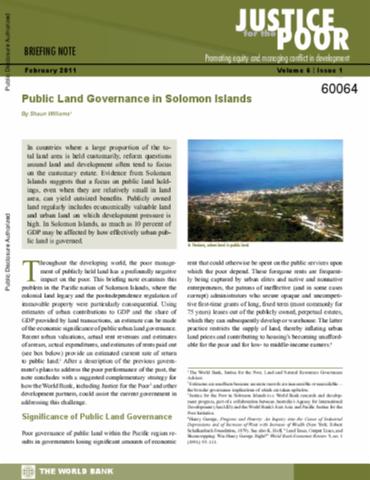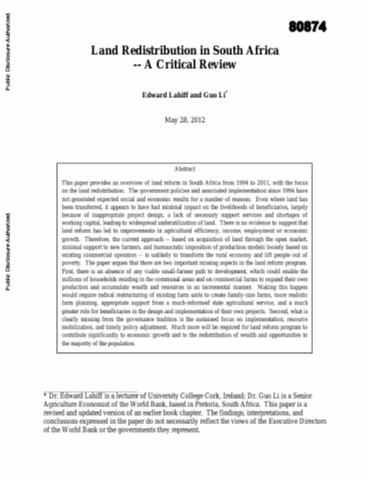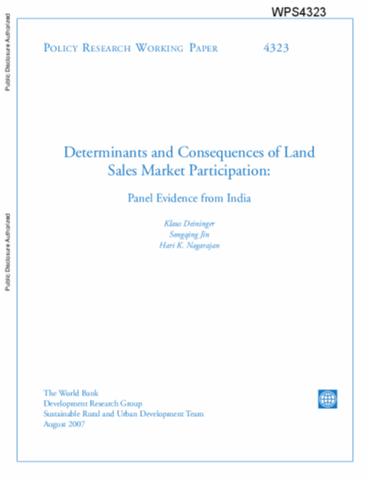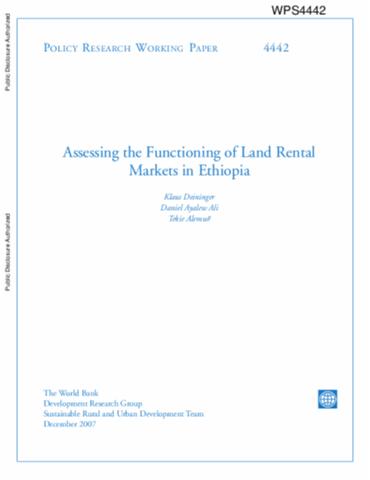Do Overlapping Property Rights Reduce Agricultural Investment? Evidence from Uganda
The need for land-related investment to
ensure sustainable land management and increase productivity
of land use is widely recognized. However, there is little
rigorous evidence on the effects of property rights for
increasing agricultural productivity and contributing toward
poverty reduction in Africa. Whether and by how much
overlapping property rights reduce investment incentives,
and the scope for policies to counter such disincentives,



